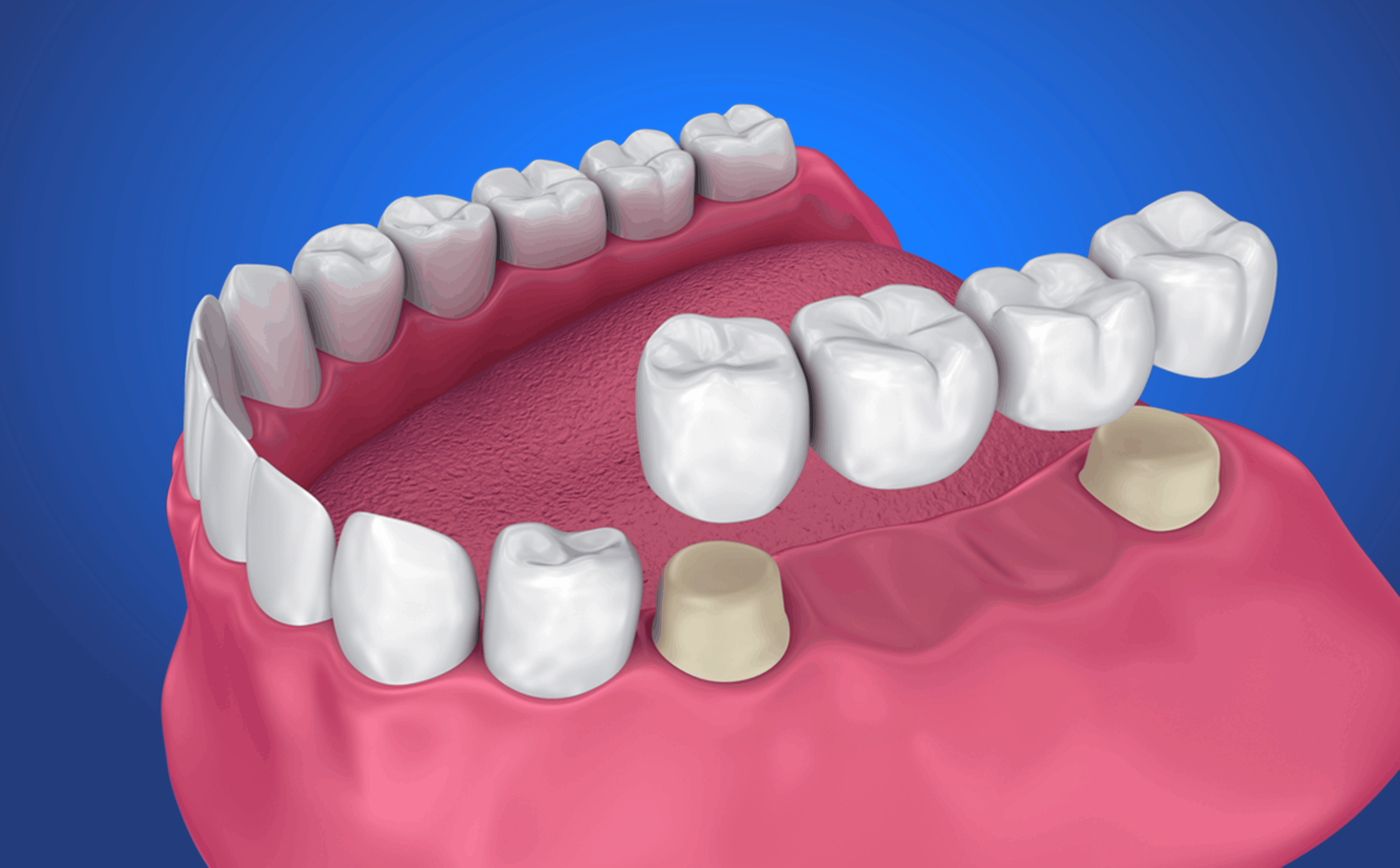Have you suffered tooth loss? Over time, your remaining teeth will have a tendency to shift or turn into the gap left behind by your missing teeth. Those unnatural and unplanned changes to the alignment of your teeth and the shape of your bite can negatively affect your dental function. To prevent those unnatural distortions of your jaw and bite, your dentist in Prince Albert may recommend supporting replacement teeth — called pontics — with a dental bridge anchored to healthy teeth at either end of the gap. Alternatively, bridges can also be anchored permanently with dental implants.
What are dental bridges?
Dental bridges are restorations custom designed and fit for your particular needs using computer-aided design (CAD). Today’s advance and modern dental bridges are milled from a ceramic material that has the advantage of being similarly translucent to your own healthy teeth. The pontics supported by dental bridges are designed to blend naturally and seamlessly with your own teeth to provide a discrete solution for tooth loss.
How to prolong the life of dental bridges in Prince Albert
Dental bridges are, with proper care and maintenance, highly durable. A well-maintained bridge can be expected to last for 10 to 15 years. Like any tooth or restoration, bridges are vulnerable to being damaged in accidents or trauma.
The most common threat to the lifespan and integrity of dental bridges, though, is tooth decay. Strange as it may seem considering that dental bridges are made from ceramic and not from enamel and other living tissues, poor oral hygiene can shorten the lifespan of a dental bridge in Prince Albert. Here are four tips that will help you to prolong the life of your dental bridge.
Don’t chew on hard surfaces
Ceramic dental bridges are strong and durable, but still vulnerable to breaking or cracking under excessive force or pressure. To prolong the life of dental bridges in Prince Albert, avoid bad habits such as chewing on ice or other hard substances and don’t open bottles and packages with your teeth.
Clean your bridge every day
Think of your dental bridge as a replacement tooth and give it the same daily attention that you do your other teeth. Plaque and tartar can accumulate on the surfaces of your bridge and, from there, can affect neighbouring teeth. Brush your bridge daily with a soft-bristle toothbrush.
Floss daily
Flossing is no less important when wearing a dental bridge than if you had a full set of natural teeth. Setting aside how essential flossing is to your overall dental health, your bridge relies on having natural teeth at either end to provide support for your restoration. Flossing daily between every tooth, and between each tooth and your gums will prevent the accumulation of plaque that can contribute to tooth decay, gum disease, and loss of essential structural support for your bridge.
Rinse with fluoride
For all the same reasons that you should floss daily, it is important to use a fluoride rinse regularly. Rinsing will remove any food particles left behind after flossing and brushing, and is especially helpful in preventing bacteria and plaque from building up at your gum line. Your gums are essential for sealing the roots of your teeth and protecting the interior of your jaw.
Gum disease can cause those gums to recede and leave behind pockets that can fill with food particles, bacteria, and pus. Overtime. Advanced periodontitis can destroy bone matter which can cause your teeth to loosen and even fall out.
Are you living with a gap in your jaw due to tooth loss? Dental bridges can restore your full smile and eliminate any self-consciousness you experience after having lost teeth, and prevent unnatural distortions of your jaw and bite. When you’re ready to fill that gap and refresh your natural smile, get in touch with a dentist in Prince Albert and ask how dental bridges can help.
